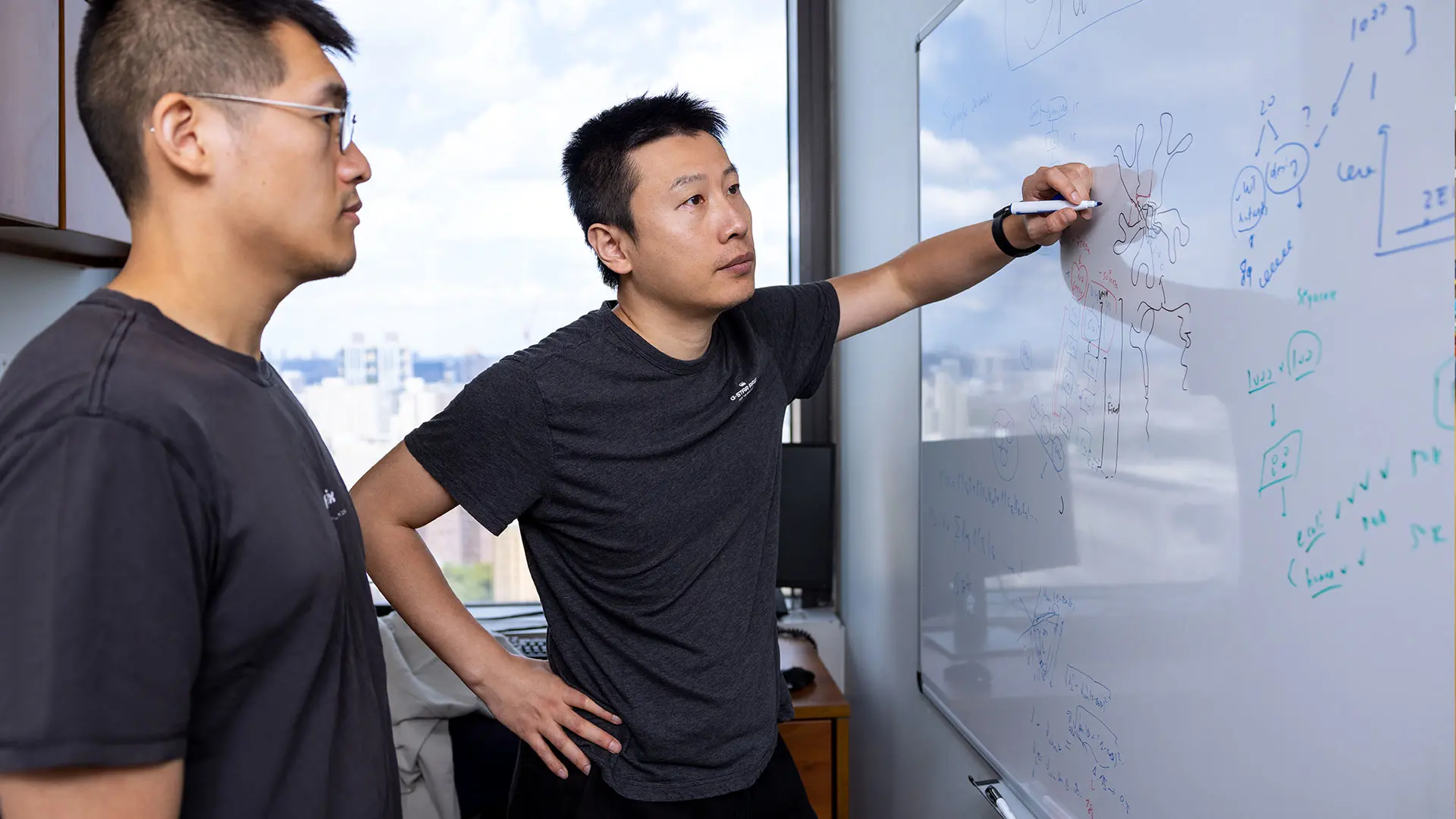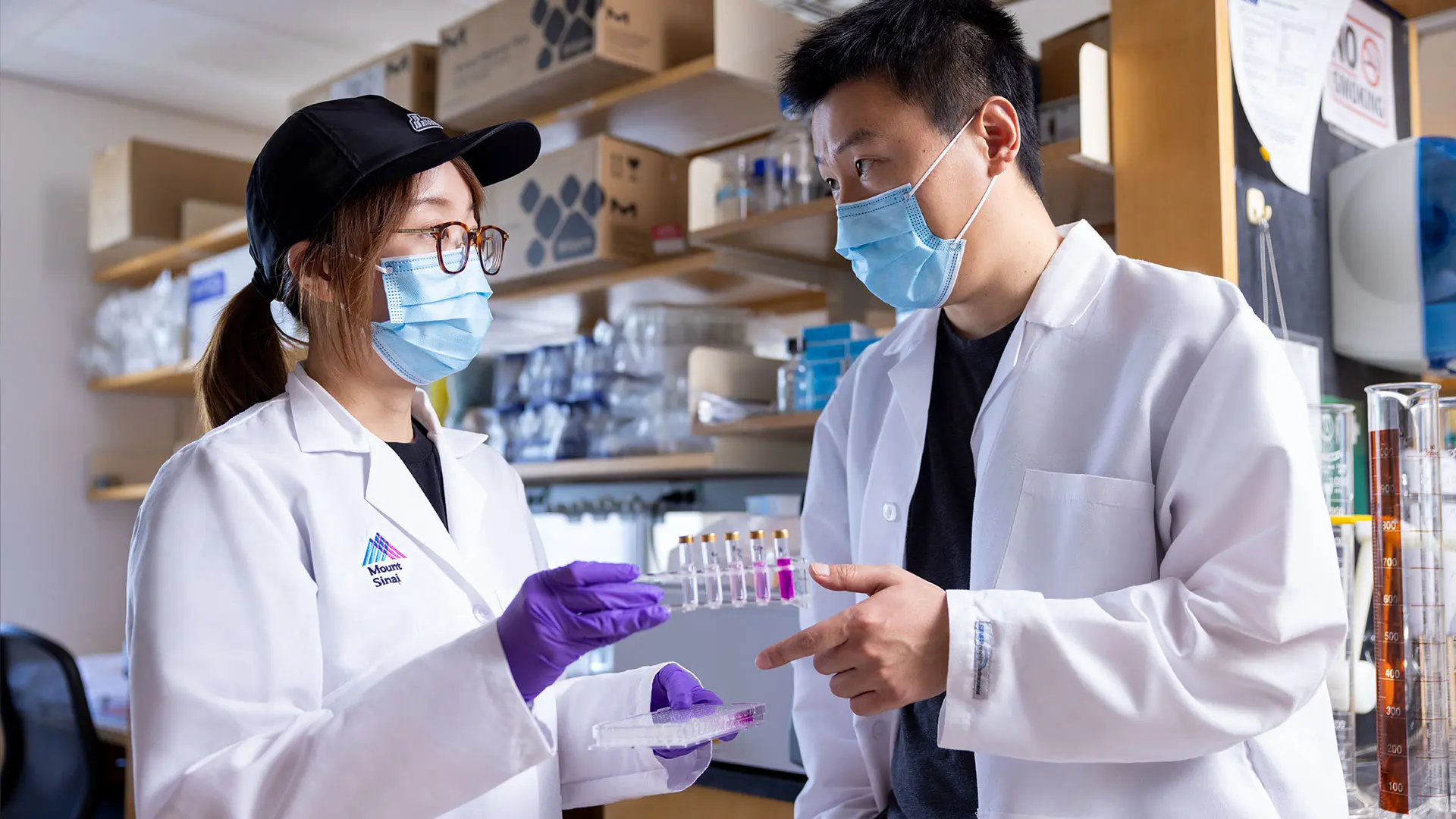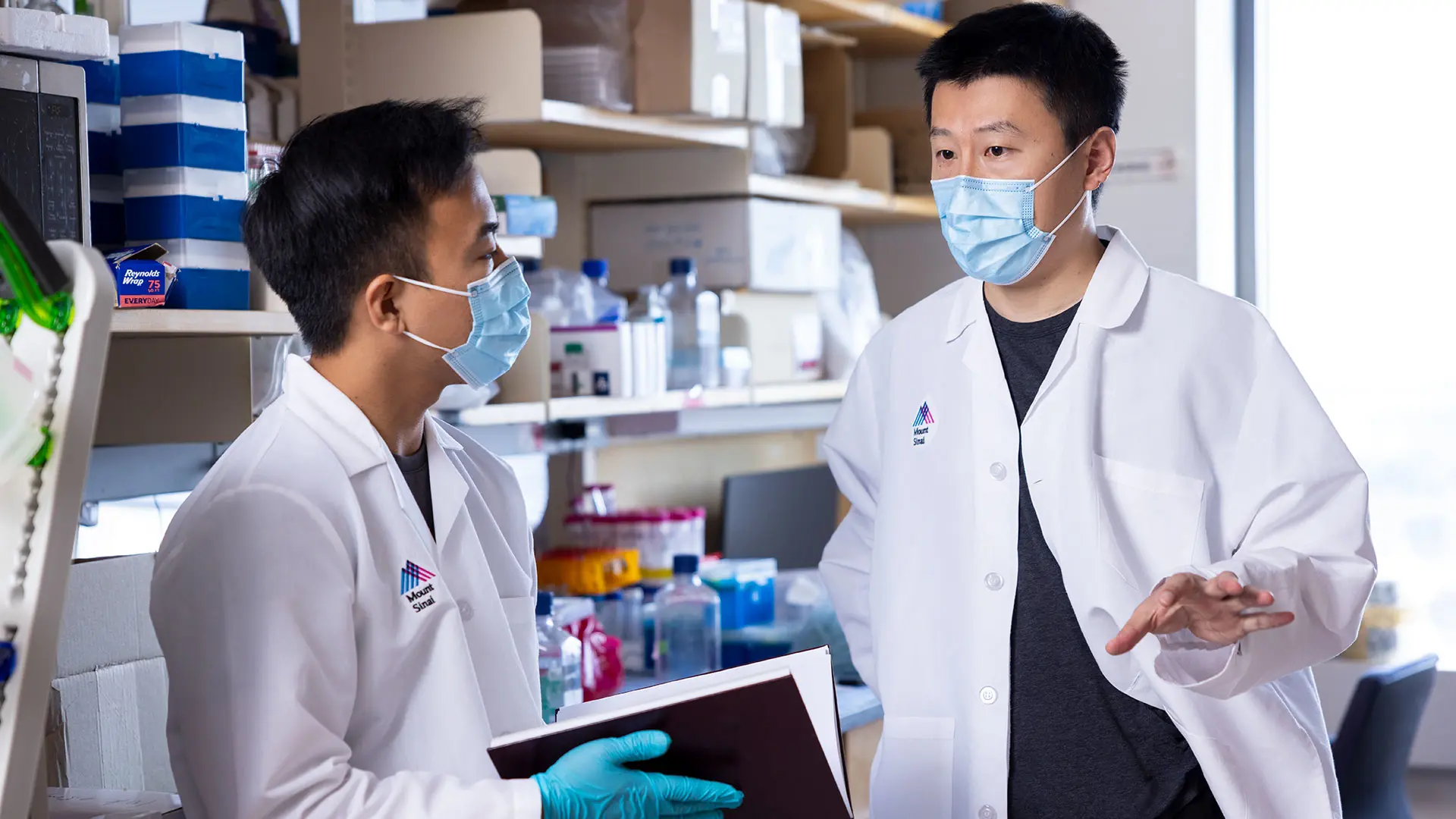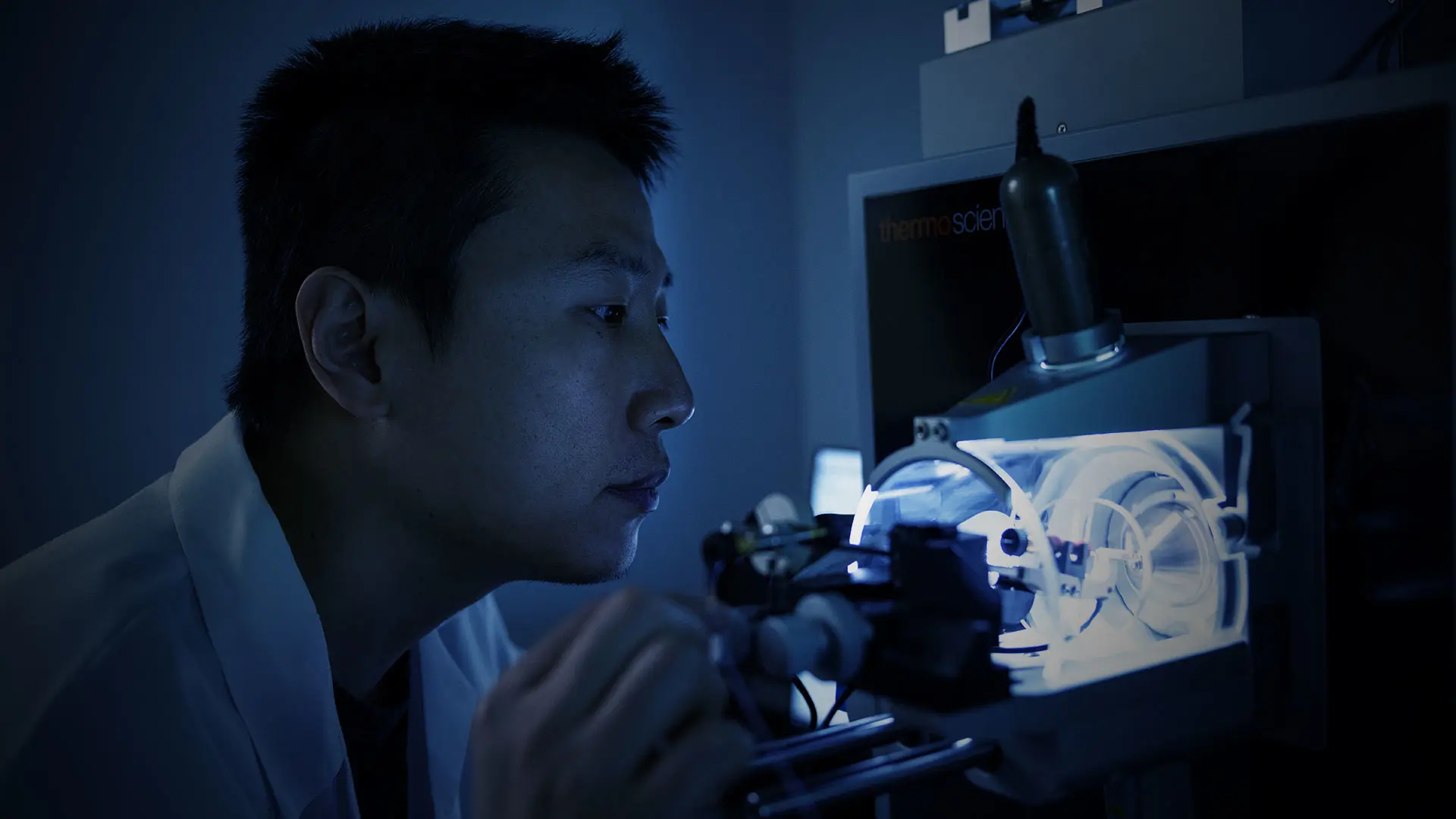“What we do in our lab is interdisciplinary research, which opens the door for students in areas focused on bioengineering nanobodies (mini-antibodies produced from llama) for disease diagnosis and treatment, and developing computational tools for structural analysis,” says Dr. Shi, who is Founding Director of the Center of Protein Engineering and Therapeutics and Associate Professor of Pharmacological Sciences at the Graduate School of Biomedical Sciences at the Icahn School of Medicine at Mount Sinai.

Yi Shi, PhD, right, brainstorming with Zhe Sang, a PhD candidate at Mount Sinai’s Graduate School of Biomedical Sciences, on his thesis project
Graduate students at his previous lab at the University of Pittsburgh School of Medicine, who are now at Mount Sinai, played key roles in the publications of a series of seminal works, including the development of ultrapotent nanobody therapy against COVID-19, which was published in November 2020 in Science, and illumination on novel antiviral mechanisms of anti-COVID nanobodies (Nature Communications 2021). In the most recent study in Cell Reports, a student in his lab helped discover a large repertoire of “super immunity” molecules known as broad-spectrum nanobodies that can be leveraged as a fast-acting, inhalable antiviral treatment or spray to provide protection against COVID-19, its future variants, and numerous other SARS-like viruses.
“These students helped us to analyze structural data and contributed a great deal to our understanding of the mechanisms by which antibodies inhibit the SARS-CoV-2 spike protein,” says Dr. Shi.
“Our lab has started to develop methods and informatics that can revolutionize the discovery and characterization of nanobodies.”
– Yi Shi, PhD
Fascinated by the enormous biomedical and therapeutic potential of camelid, single-chain nanobodies, Dr. Shi has committed a major part of his research to how these tiny immune particles—about a tenth the size of normal antibodies—modulate and treat human disease caused by dysfunctional protein interactions. “Our lab has started to develop methods and informatics that can revolutionize the discovery and characterization of nanobodies,” he explains.

Yi Shi, PhD, with lab colleague Yufei Xiang, MS
As part of that groundbreaking work, students in Dr. Shi’s lab have developed a proteomic strategy and the informatics tools (Cell Systems 2021) to allow for high-throughput identification and characterization of drug-quality antibodies. The result was validation of more than 100,000 antigen-antibody complexes, including a surprising diversity of ultrahigh-affinity camelid nanobodies for binding to various dominant epitopes on specific antigens. A student in his lab has also developed “Llamanade,” which is the first-in-class software to facilitate humanizing therapeutic nanobodies. Using these new approaches, the Shi lab is actively exploring a wide range of biomolecules found in nature for advanced biomedical applications, including diagnosis and treatment of cancer and neurodegenerative disorders.
“Instead of making all the students work on one highly defined problem, I would rather give them the freedom to go in different directions.”
– Yi Shi, PhD

Jeffrey (Yong Joon) Kim, an MD/PhD candidate at Mount Sinai’s Graduate School of Biomedical Sciences, with Yi Shi, PhD
That investigative zeal across an array of timely scientific fields works to the great advantage of students in the Shi lab. “Instead of making all the students work on one highly defined problem, I would rather give them the freedom to go in different directions,” says Dr. Shi. One student, for example, is currently developing therapies against multidrug-resistant bacteria, a fast-growing threat, while another student created with mass spectrometry potent nanobodies for tailored pharmacokinetic improvement of small therapeutic proteins and application in anticancer therapy (Duraleukin), eventually generating a mouse model that showed encouraging in vivo activity.
“I consider myself both a mentor and colleague to my students,” says Dr. Shi. “There’s a lot of discussion and a lot of interaction, and I share in their excitement. I truly enjoy working with students in the course of their learning, and I view their successes as part of my own.”
